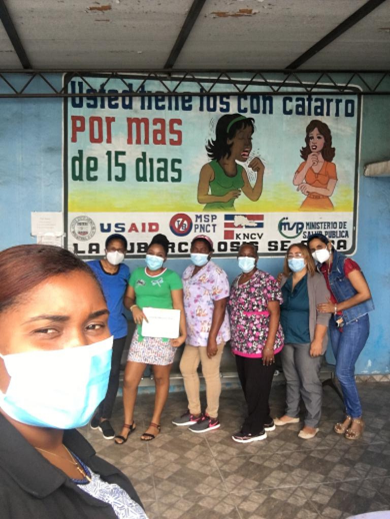TDR-supported studies on short, all-oral regimens for drug-resistant tuberculosis have shown high treatment success rates and prompted national policy changes in the Dominican Republic and Ecuador, who have integrated the novel regimens into routine care for drug-resistant TB patients.
In collaboration with the WHO Global Tuberculosis Programme and technical partners, TDR has developed the ShORRT operational research package (Short, all-Oral Regimens for Rifampicin-resistant Tuberculosis) to support the implementation of such drug regimens.
Since 2019, the ShORRT initiative has involved and supported 27 countries worldwide, working alongside WHO regional and country offices, academia, technical partners such as KNCV Tuberculosis Foundation, the Union and Damien Foundation, and funding agencies such as the United States Agency for International Development (USAID) and The Global Fund to Fight AIDS, Tuberculosis, and Malaria.
In the Region of the Americas, TDR, in collaboration with the Pan American Health Organization (PAHO), has been supporting the national TB control programmes (NTPs) of Colombia, Dominican Republic, Ecuador, Mexico and Nicaragua, which have used ShORRT to conduct operational research studies on the effectiveness and safety of the novel all-oral regimens for drug-resistant TB patients. In addition, studies in Colombia and the Dominican Republic assessed the impact of these drug regimens on the health-related quality of life of patients.
In the Dominican Republic, 113 patients with TB drug resistance were enrolled in seven drug-resistant TB clinics. Results of the study were published in BMC Infectious Diseases and showed that 79% of patients were successfully treated without relapse six months post-treatment. Due to the high success rate and satisfactory safety profile, the national TB control programme adopted this shorter treatment regimen lasting 9 to 12 months instead of 18 months for the standard regimen. Since September 2023, this short all-oral regimen is recommended for all patients with multidrug- and rifampicin-resistant TB in the Dominican Republic.

Dominican Republic team for ShORRT. Credit: Maria Rodriguez
In Ecuador, the study was conducted in 61 health units across three cantons in Ecuador’s Zone 8: Guayaquil, Durán, and Samborondón. Between February 2020 and December 2022, 164 patients with multidrug-resistant or rifampicin-resistant TB were enrolled. The all-oral shorter regimen demonstrated an effectiveness of 74% compared with 42% for the standard regimen, with improved adherence and reduced loss to follow-up during the treatment. The insights gained from this study, combined with experiences from other countries in the region and WHO recommendations, have led Ecuadorian national authorities to adopt the all-oral 9-month short regimen evaluated in this study, along with the BpaL regimens, as part of their national health policy.

A 20-year-old patient diagnosed with RR-TB receiving certification of "cured" after 9 months of all oral treatment accompanied by health personnel from the specialized TB center, Santo Domingo, Dominican Republic. Credit: Aline De Cima
For more information, please contact Dr Corinne Merle.

